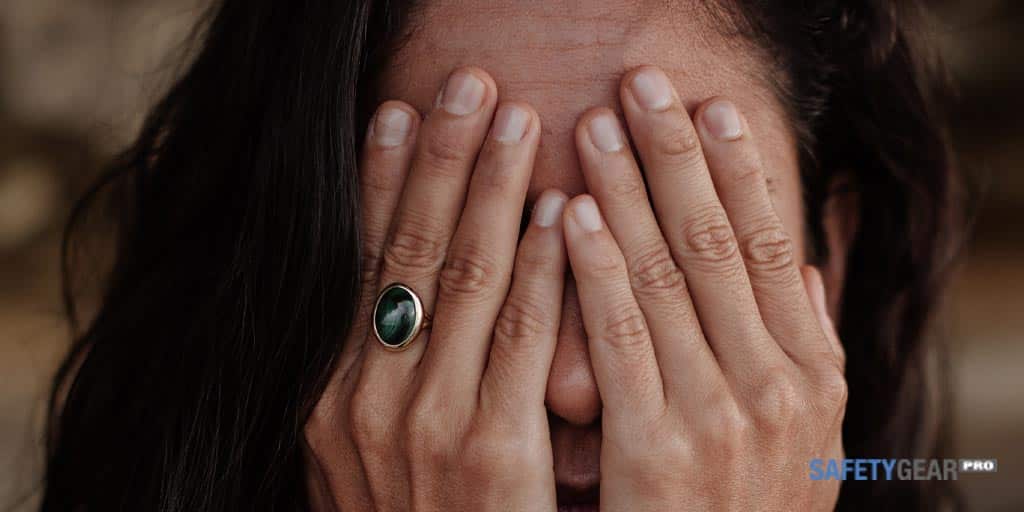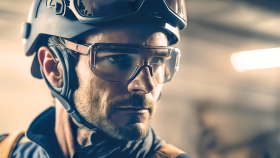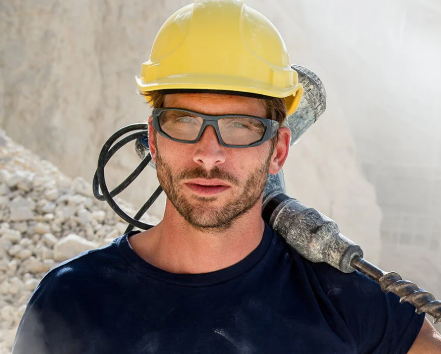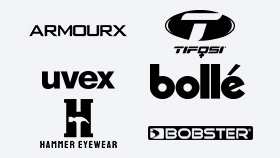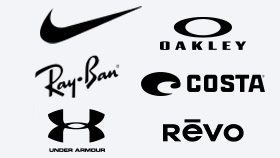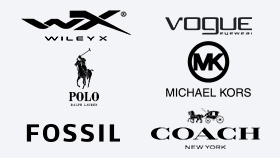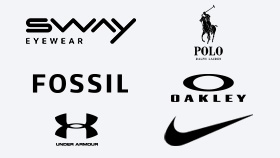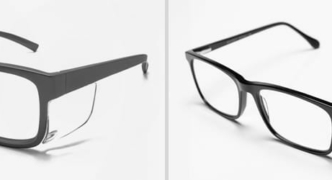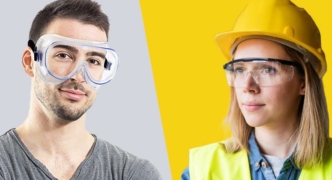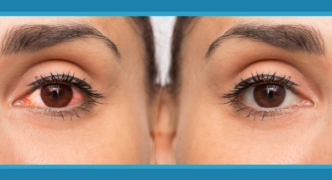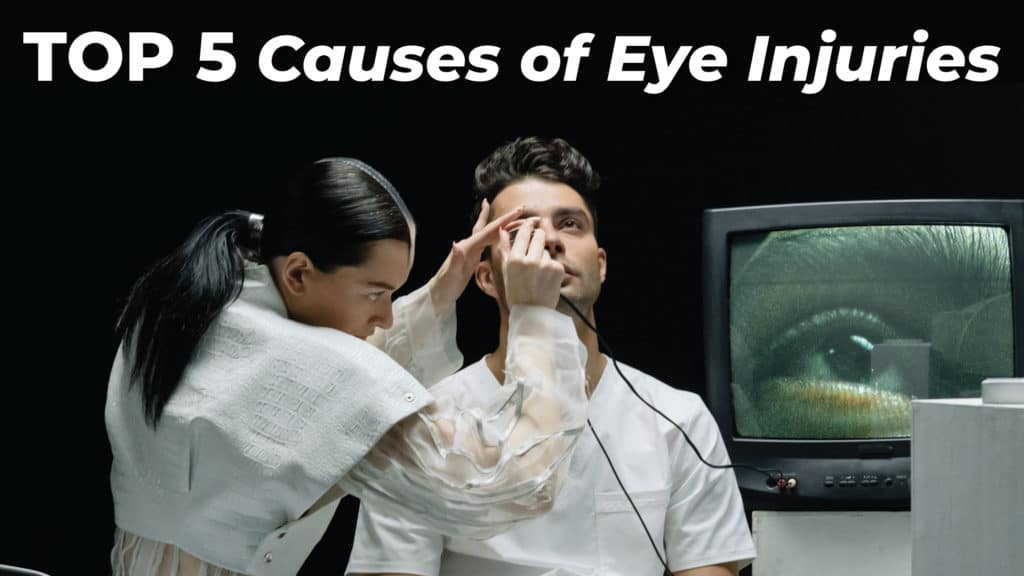
To experience much of the world, you rely on your eyesight. For workers, their sharp eyesight and safety glasses are necessary for the job; small details and minuscule differences in measurement are essential to the work. For athletes, seeing with sports goggles is a vital part of training and running drills; teammates rely on visual communication for plays and passes. Prescription safety glasses are a common solution for those who need corrective eyewear to protect their eyes while correcting their vision. However, eye injuries that result in damage to the eyes or long-term eyesight damage are also common. Learn the most common causes of eye injuries so that you can avoid them and focus instead on eye protection and injury prevention.
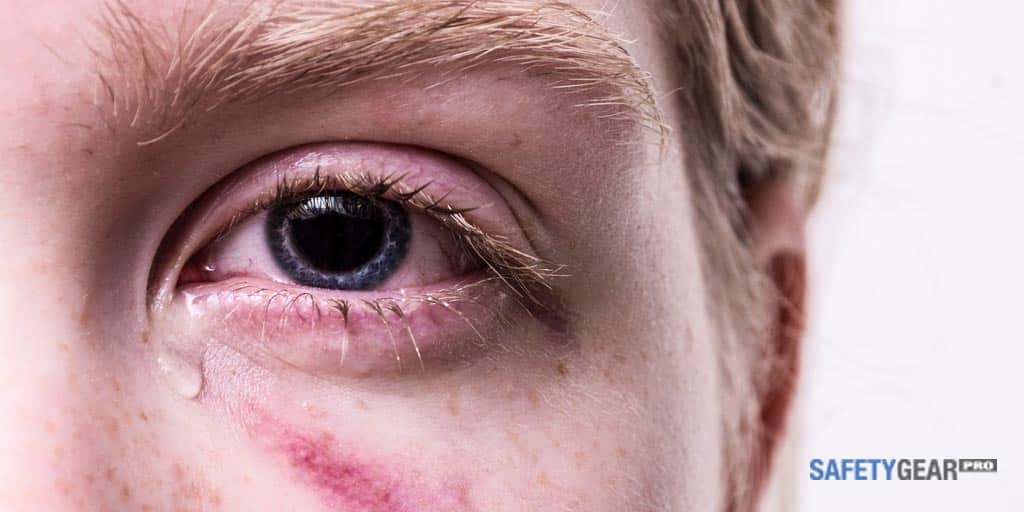

Impact or Blunt Trauma to the Eyes
When something hits your eye with great force, it is an impact trauma to your eye. Blunt force means that the injury damages but does not penetrate the eye. Blunt force eye traumas are very common and often only harm the skin and surrounding vessels in the face and eyelids. However, more intensive trauma can break facial bones and could require reconstruction. Burst capillaries both outside of and inside of the eye can cause bleeding. Sports goggles on the field, the slopes, or on the court will help prevent injuries to your eyes. Blunt force trauma is the most prevalent injury coming from:
- Sports accidents
- Slips and falls
- Physical assaults
Burns on or in the Eyes
Chemical and flash burns damage the eyes without the use of safety glasses. Both types of burns have long-lasting effects and are very painful.
Flash
Flash burns come from what you might typically think of as a traditional burn. Sources of heat and intense light could give you a flash burn. Prolonged staring at the sun or an explosion or welding or tanning lamps are all common examples of sources of flash burns that people experience. Protecting your eyes with appropriate safety wear is integral for continued health.
Chemical
Chemical burns can cause long-lasting damages to your eyes and your vision, including scarring and blindness. This type of burn happens when a chemical accidentally makes its way into the user’s eyes. Some chemical burns like acid attacks can also have the same damages, and remember that fumes can also damage eyes and mucous membranes.
Objects in the Eyes
Foreign objects in the eyes are a common injury that ranges widely in severity. A single grain of sand can cause catastrophic damage inside your eye, whereas a pesky gnat might be easier to get out quickly with minor damage. Some of the most damaging eye injuries are penetrating or foreign objects in the eyes. Many tactical shooters or professional fishers do not wear their prescription safety glasses out on the range or the fishing boat. Shrapnel has been known to fly several hundred feet away from even a traditional target. Fish hooks, fish, birds, poles, and clumsy fishing partners have made many a fishing trip end in the ER with an eye bandage rather than a whopper of a catch at home. Safety glasses also reduce glare from the water and sun.
Scratches and Infections of the Eyes
Your eye can be scratched by anything. Your actual finger can scratch your eye, or it can be a correlating injury to blunt force trauma, or you might just catch a branch while turning around, etc. Scratches can heal quickly if identified and treated correctly. However, if left alone, a scratch on your eye can sometimes lead to much worse. Fungal and bacterial infections could occur if you are not careful. Seek medical attention to rid yourself of a painful scratched eye and any possibility of infection.
Radiation Exposure to the Eyes
Radiation is much like a chemical burn because it can cause long-lasting effects once the initial damage has been done. Radiation is also like a flash burn in that it can be caused by prolonged exposure to the sun. However, radiation is unlike these two types of burns because it explicitly causes damage to the small area of the retina in your eye. Sunglasses will help prevent harmful exposure to UV rays.
Eye Protection and Injury Prevention
To appropriately protect your eyes from harm, identify the ways that you are most likely to injure your eyes. If it is sports, record that. If you are a welder, you know that flash burns are a severe hazard to the health of your eyes. Once you determine what kind of safety protection you need, you can shop Safety Gear Pro for a vast selection of safety glasses, safety sunglasses, all with or without prescriptions. Pay attention to the ANSI rating to determine if the safety glasses you are considering will provide the protection you need.
FAQs
Do you offer prescription safety glasses that are motorcycle goggles?
Yes! We offer a selection of motorcycle goggles that you can customize with your prescription. Many motorcycle goggle options are wrap-around with the strap included. Our motorcycle goggles are OSHA-approved and ANSI-rated Z87+ with D3 and D4 protection for dust and droplets.
What does ANSI rated mean?
ANSI stands for the American National Standards Institute. ANSI established and uses a rating system for many different goods, but the ratings used on our site relate to eye protection. For eye and face protection, the standard is ANSI Z87 1. The glasses that have this rating are ANSI will specifically identify which aspects of the Z87 standard comply.
If my safety glasses are ANSI rated, does that mean they are automatically OSHA approved?
Not always. Depending on your specific field of work, there will be different guidelines for you to follow. Even though many glasses are ANSI rated, they may not comply with every standard. Be sure to check the standards that the ratings comply with and the standards required for your work.
Do you offer sports goggles, too, or just workplace safety glasses?
Both! And sunglasses too! We offer all different kinds of sports goggles to meet your athletic needs. From skiing and snowboarding to tennis to snorkeling and swimming and more, we have a large selection of sports goggles that will protect your eyes and ensure that you maintain your sharp vision for a competitive edge.
I travel between job sites and often go from indoor to outdoor with my prescription safety glasses. What do you recommend?
An excellent match for your needs is the Uvex Horizon Prescription Safety Glasses. The Uvex Horizon is a flip-up style that offers sunglasses and regular glasses in one, a perfect combo for indoor to outdoor in one pair. To help keep you safe on the job site, the Uvex Horizon glasses meet ANSI Z87.1-2010 high impact standards.
